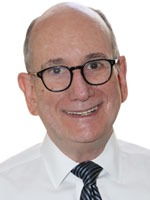CAALA Education: From in-person to online overnight
CAALA is one of a select few organizations certified to offer online MCLE programs
One of the cornerstone benefits provided by CAALA to its 3,100 members is outstanding education. CAALA’s members are among the nation’s elite trial lawyers and the programs CAALA offers have to be the best.
For years, those programs were in-person. Members would gather in hotel ballrooms or restaurants for seminars. Within the past five years, CAALA began offering programs in our office conference center. Of course, our signature event was CAALA Vegas and in-person connection was a major reason for its success.
In recent years CAALA members, especially younger ones, grew more comfortable with technology and some asked for resources and programs to be available online. CAALA responded by providing a large archive of on-demand programs as well as resources such as the popular document bank. We also began experimenting with webcasts and the live streaming of programs.
When CAALA moved into its new office in 2018, the conference rooms had state-of-the-art A/V with built-in cameras and microphones. We had the ability to provide live access to programs, but most members still preferred to appear in person. We thought this was counter to common sense, as anyone who commutes to downtown Los Angeles can attest.
Regardless, the emphasis stayed on in-person programs and the transition to online was a slow one. That all changed when we first heard the words “COVID-19.” The slow transition from in-person to online programs began moving at the speed of light.
When the crisis hit, CAALA adapted, and overnight, began to meet the needs of our members by presenting live streaming of seminars and programs using various platforms in addition to our proprietary delivery system, SeminarWeb Live.
The Education Committee
Taylor Rayfield is chair of CAALA’s Education Committee. Along with Vice Chairs Christina Coleman and Rahul Ravipudi, and with the counsel of the Education Committee, she began putting together a rapid-fire schedule of online programs. Daniel Pierson, Lauren Horwitz, Belinda Theam and Derek Tran, the Chairs of CAALA’s Membership and New Lawyers Committees, also joined in.
Beginning late in March, CAALA presented 12 live webinars in a little more than four weeks. We also offered Town Halls from the L.A. Superior Court, CAOC and AAJ. All were recorded for viewing later.
In a matter of days CAALA went from in-person to online but we were still a provider of information the members needed.
We were not the only legal organization to present free webinars in April and May. It seemed like every for-profit and non-profit organization discovered Zoom and jumped in. Some featured prominent local and national trial attorneys. Many, of course, were CAALA members.
Participation in programs triples
CAALA’s approach for the first six weeks of the crisis was to not focus on personalities telling stories, but instead to focus on content. CAALA wanted to provide webinars that helped members cope with the crisis. Most had topics such as How to Run a Practice During a Quarantine; How to Work Remotely; Insurance Coverage for COVID-19 Business Losses and How to Conduct Virtual Mediations.
All had outstanding response, with attendance sometimes triple the turnout of previous programs.
In addition to content that mattered, four things made those CAALA programs unique. All were free; all used great technology; all were recorded so they could be watched later; and most importantly, all offered State Bar-approved MCLE credit. Very few organizations could make the same claims.
For many years, CAALA has been one of the few organizations authorized as a Multiple Activity Provider by the State Bar of California. Before allowing those approved providers to issue MCLE credit, the State Bar evaluates the programs the providers plan to present to practicing attorneys. Programs longer than one hour must include substantive written materials to qualify.
MCLE credits for online programs
CAALA members know that State Bar rules require you to earn 25 MCLE hours every three years. What some members do not know, is that participatory credits can be earned for online programs but only if the provider is State Bar certified.
That is important, especially if you are one of the unlucky CAALA members whose MCLE claims are audited by the State Bar. If that happens, CAALA can easily provide you with the proper documentation to verify your attendance, even online. Other organizations offering webinars cannot say the same.
Self-study programs, such as those in CAALA’s on-demand library, can also earn MCLE credit, but can only account for half of your MCLE hours during the reporting period.
In recent weeks, Rayfield and her committee reached out to CAALA members in surveys to learn what the members wanted from the programs that will be offered through the end of 2020. All will be virtual and will range from new and inventive programs to those that cover the basics for trial lawyers who might be looking for new practice areas.
We are still in the midst of the COVID-19 crisis, but we can see that some good things will come from this time of forced quarantines and working remotely. One is that CAALA members are more comfortable attending programs remotely. As it has for more than 70 years, CAALA will continue to meet the needs of the members, in this case by presenting great State-Bar certified education programs online.
If you have ideas for online webinars and programs, Rayfield and her committee would love to hear from you. And, you won’t need to get in your car or dress up to attend. It’s about time.
Stuart Zanville

Stuart Zanville is the Executive Director of the Consumer Attorneys Association of Los Angeles (CAALA). Contact him at (213) 487-1212 or by e-mail: stuart@caala.org.
Endnote
CAALA Education: From in-person to online overnight
Copyright ©
2025
by the author.
For reprint permission, contact the publisher: Advocate Magazine
